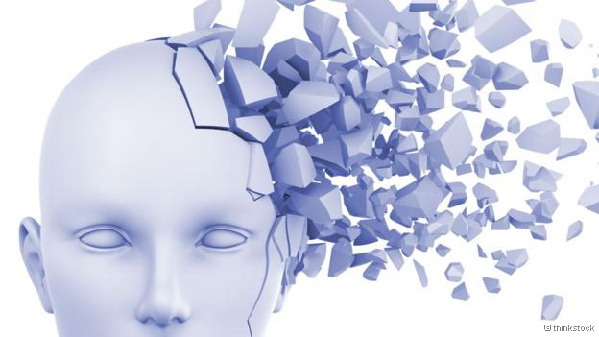感覺(jué)自己總是“鴨梨山大”、失眠多夢(mèng)、情緒失控,腦袋里老是嗡嗡作響,莫名其妙地看到電火花或閃光,耳邊經(jīng)常響起巨大、刺耳的爆炸聲?歹勢(shì),你可能患上了一種名為“爆炸頭綜合癥”(exploding head syndrome)的新式現(xiàn)代病。

"There's this sudden crescendo of noise, then a profound and jarring explosion of sound, electrical fizzing and a bright flash in my vision, like someone has lit a spotlight in front of my face."
“噪音突然增大,然后我聽到巨大、刺耳的爆炸聲,看到電火花和明亮的閃光,就像別人把聚光燈打到我的臉上一樣。”
That's how Niels Nielsen describes what it's like to live with "exploding head syndrome" – an unpleasant and sometimes terrifying sensation. Others describe it as like a bomb going off next to their head as they fall asleep. Sometimes it occurs just once in a lifetime, for others it happens multiple times a night.
這就是尼爾斯·尼爾森對(duì)“爆炸頭綜合癥”的描述——一種讓人不適,有時(shí)甚至讓人感到恐怖的體驗(yàn)。也有其他人將這種癥狀描述為,就像是快睡著時(shí)頭附近有炸彈爆炸一般。有些人一生只經(jīng)歷一次,另一些人則一晚會(huì)經(jīng)歷多次。
The physician Silas Weir Mitchell first described the disorder in 1876, when he described two men who suffered from what he called "sensory discharges" – the men themselves described it as hearing "loud bells" or a "gunshot" that would wake them from sleep.
1876年,外科醫(yī)生西拉斯·魏爾·米歇爾首次記述了這種病,他當(dāng)時(shí)描述稱兩名男子出現(xiàn)了他稱之為“感官放電”的癥狀——他們自稱因聽到“巨大的鐘聲”或“槍聲”而驚醒。
Theories about the cause of an exploding head are speculative, says Brian Sharpless, assistant professor of psychology at Washington State University. Several ideas have been proposed, including ear disorders and partial epileptic seizures. But the most compelling theory comes from a handful of studies in which people with the condition have had their brain activity monitored overnight. These studies suggest that there may be a burst of neural activity in the brain that coincides with the reported explosion.
華盛頓州立大學(xué)心理學(xué)助理教授布賴恩·夏普萊斯表示,關(guān)于爆炸頭綜合癥的原因尚無(wú)定論。目前已提出幾種可能,包括耳功能障礙和癲癇局部發(fā)作等。其中一種理論最具可信度,多項(xiàng)對(duì)夜間大腦活動(dòng)進(jìn)行監(jiān)控的研究顯示,發(fā)現(xiàn)爆炸頭癥狀出現(xiàn)的同時(shí)往往伴隨著大腦神經(jīng)活動(dòng)的突然活躍。
While there is no cure-all treatment, antidepressants reduce occurrence, as do relaxation and stress-busting techniques. "You can help a lot just by reassuring a person that they're not crazy or experiencing symptoms of a tumour or some other brain disorder," says Sharpless.
雖然還沒(méi)有根治的方法,抗抑郁藥可以減少該病癥出現(xiàn)的次數(shù),放松和減壓技巧也有相同效果。夏普萊斯稱:“只要讓患者確信自己沒(méi)有瘋掉,這也不是腫瘤的癥狀或其他的大腦病癥,就是對(duì)他們的極大幫助。”
(中國(guó)日?qǐng)?bào)網(wǎng)英語(yǔ)點(diǎn)津 丁一)